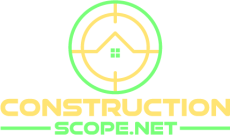Purchasing second-hand machinery can be a cost-effective way for businesses to acquire the necessary equipment without breaking the bank. However, it’s essential to approach such purchases cautiously to ensure you’re getting reliable and functional equipment. Whether you’re a startup or an established company, these tips will help you make smart decisions when buying second-hand industrial equipment.
Assess Your Needs
Before diving into the market for second-hand machinery, clearly define your requirements. Understand the specific tasks the industrial equipment needs to perform and the features it should have.
Consider factors like capacity, power requirements, and compatibility with existing machinery. A well-defined list of needs will prevent impulsive purchases and save you from investing in machinery that doesn’t suit your operational requirements.
Research Thoroughly
Once you clearly understand your needs, start researching the market for available options. Check online marketplaces, auctions, and specialized second-hand equipment dealers. Compare prices, brands, and conditions to get an idea of the market value for the industrial equipment you’re interested in. Be patient during this phase, as finding the right deal may take time.
Inspect the Equipment in Person
Always inspect the machinery in person before making any commitments. Photos and descriptions may not capture all the details, and it’s crucial to see the equipment’s condition firsthand. Check for signs of wear, rust, or damage. Ask the seller about the machinery’s history, maintenance records, and any known issues. If possible, test the equipment to ensure it functions as expected.
Verify the Seller’s Credibility
Whether you’re dealing with an individual seller or a used machinery dealer, verify their credibility. Check for reviews, testimonials, or references from previous customers. If purchasing from an online marketplace, look for sellers with a good track record and a high rating. Trustworthy sellers are more likely to provide accurate information about their industrial equipment.
Ask for Warranty or Return Options
While buying second-hand machinery carries inherent risks, it’s wise to inquire about warranty or return options. Some sellers offer limited warranties on used equipment to give customers confidence in their purchase. A warranty can protect you from unexpected malfunctions or defects not evident during the inspection.
Consider the Equipment’s Lifespan
Before finalizing a purchase, research the average lifespan of your desired industrial equipment. Understanding the expected usage duration will help gauge if the price aligns with the machinery’s remaining life. Equipment near the end of its life cycle may not be a wise investment, even if offered at a low price.
Negotiate the Price
Don’t be afraid to negotiate the price with the seller, especially if you notice any defects or if the machinery requires maintenance. Use your research and inspection findings as leverage during the negotiation process. Many sellers are open to price adjustments, particularly if they are motivated to sell the equipment quickly.
Conclusion
Buying second-hand industrial equipment can be smart for businesses looking to save costs while acquiring the necessary machinery.
However, it’s essential to approach the process with a well-defined plan and cautious mindset. Research thoroughly, inspect the equipment, and verify the seller’s credibility to ensure a smooth and successful purchase.
Following these tips, you can confidently navigate the second-hand machinery market and find the right equipment for your business needs. Remember, a well-chosen second-hand machine can be a valuable asset contributing to your business’s efficiency and growth.

